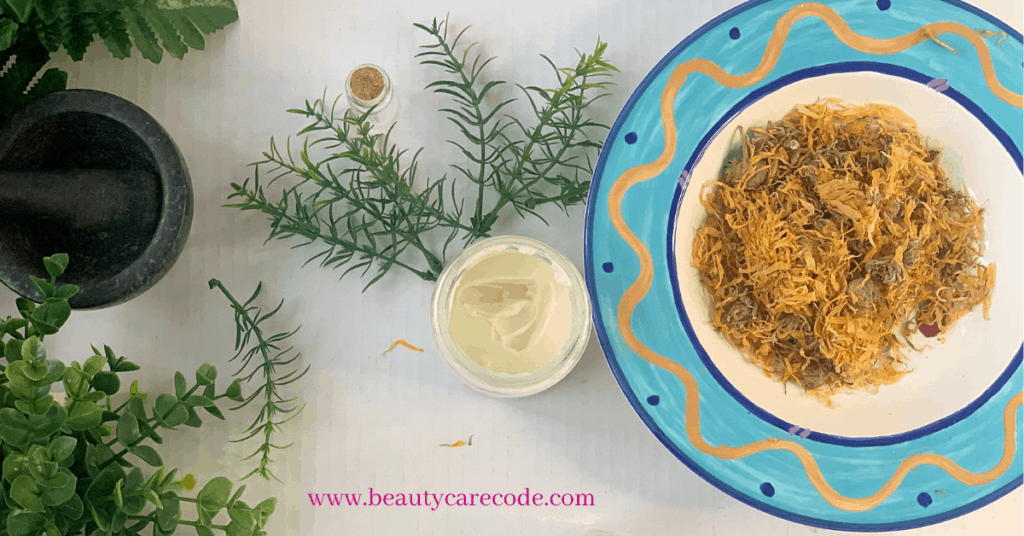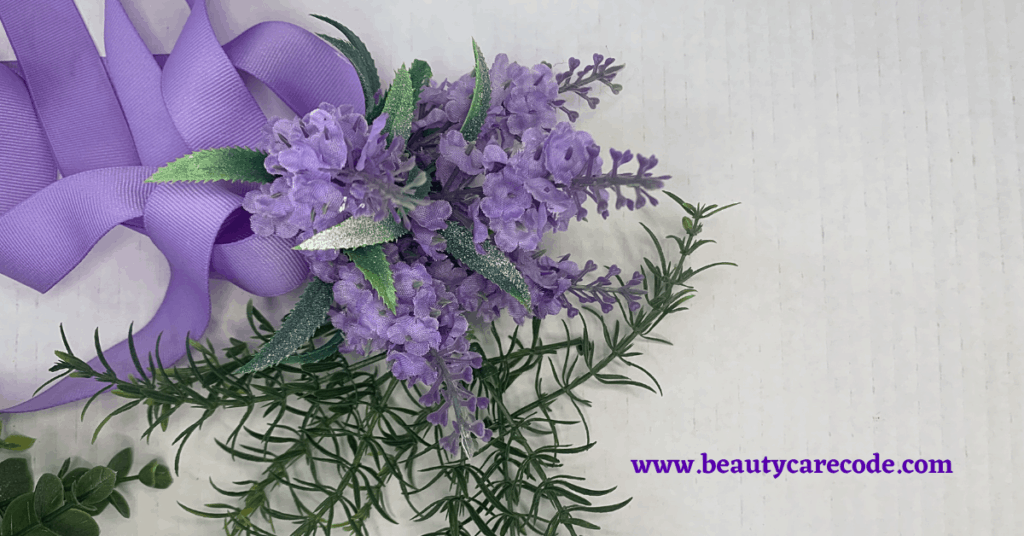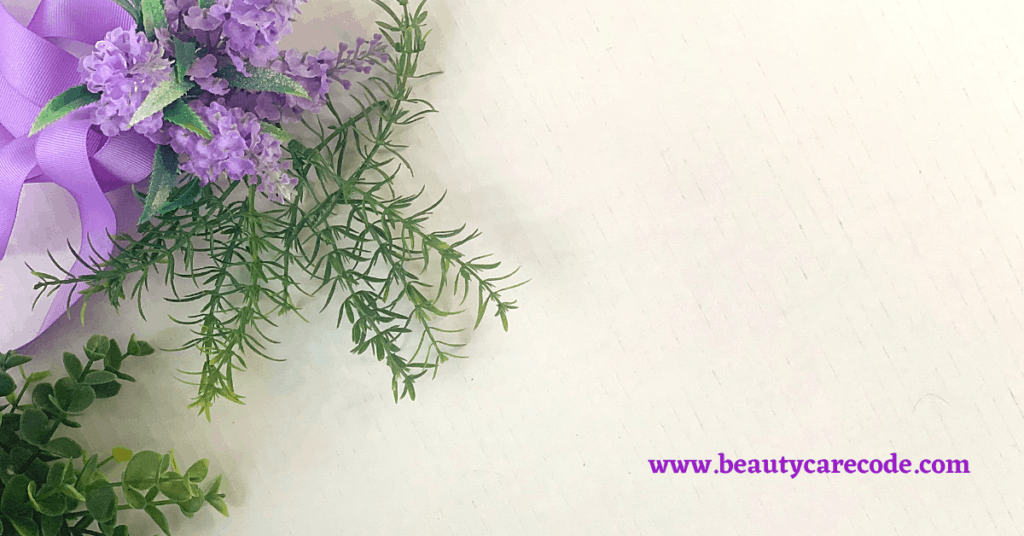When you face a health condition the first thing you normally reach for is the way to improve the condition naturally. That particularly applies to sensitive skin. People have been using herbal therapy for skin disorders for years. However, not all herbs are useful or at least harmless. There are many herbs irritating or even toxic. Here we are going to review the best magic herbs for sensitive skin or the condition related to sensitivity and find out if there is any study behind the claimed benefits.
Magic herbs for your skin, Arnica
Arnica comes from the dried flowers of Arnica montana or other arnica species, a yellow-orangish flower that grows in the mountains of Europe and Siberia. It’s sometimes called the “mountain daisy,”
Although oral administration can cause severe health hazards even in small amounts, preparations for external use are very safe and effective. Many people have used Arnica for centuries as an anti-inflammatory drug to rub into sore muscles and joints, bruises, insect bites, boils, inflamed gums, acne eruptions, and hemorrhoids. It is also an ingredient found in many seborrheic dermatitis and psoriasis preparations.
It is approved for topical treatment of skin inflammation.

When used as a compress, mix 1 tablespoon (tbsp; 15 mL) of tincture with 0.5 L of water;
As an infusion, mix 2 g of dried arnica with 100 mL of water.
You can use creams and ointments made from the flower head to address the following ailments:
- muscle soreness and aches
- bruising
- joint pain and swelling
- inflammation
Cream or ointment preparations should contain a maximum of 15% arnica oil or 20–25% tincture. The active ingredients of arnica reduce inflammation.
There are reports that arnica has caused contact dermatitis. There are also several reports that arnica causes irritation, at stronger concentrations or for longer periods than recommended. It is not recommended for use on open wounds or broken skin. It is important to buy arnica from a reputable source because it is a protected species in some countries and other plants are substituted fraudulently.
Never use a herbal product that you are not sure about your allergic reaction or sensitivity. If you want to use arnica talk to your doctor first.
Chamomile skin benefits
German chamomile (Matricaria recutita), a member of the daisy family, has been used for centuries, both internally and externally, for treating many conditions, especially gastrointestinal tract symptoms, oral or skin inflammation, as well as dermatitis.
You can make a tea by using 2–3 teaspoons (tsp; 10–15 mL) of dried flowers per cup of water and take it orally or use it as a compress.
Topical preparations with cream or ointment bases are also used and researched so far.
Studies have demonstrated that topical chamomile is comparable with 0.25% hydrocortisone and shows improvement in contact dermatitis.
A small double-blind trial found that chamomile significantly decreased the surface area of wounds and, in animal studies, reduced the healing time. Chamomile also shows in vitro antimicrobial activities.
The main adverse effect reported is allergic contact dermatitis. Chamomile is considered safe to use topically and orally. Get more detailed information here.
Magic herbs for sensitive skin, Oats
Oats (Avena sativa) has been used topically in baths for hundreds of years for their soothing and antipruritic properties, and they are approved for this use. Oat turns to a gooey sticky mass when mixed with liquid which can be used to coat the skin and sealing in moisture. This soothing and moisturizing property is attributed to the gluten content of the plant. This can be useful in treating atopic dermatitis as well as pruritus of the elderly.
Magic herbs for sensitive skin, Pansy flower
Pansy flower (V. tricolor hybrids) infusion is recommended as a nontoxic treatment for seborrheic dermatitis, especially in infants.
Pansy flower infusion
The infusion is made by mixing 1–2 tsp of flowers per cup of water and is used as a wet dressing. The flowers contain salicylic acid. Salicylic acid in concentrations of about 0.3% appears to be the active ingredient. It also contains saponins and mucilage, which have softening and soothing effects. No adverse effects have been reported with topical use.
Magic Herbs for sensitive skin, Witch hazel
The leaves and bark of witch hazel, Hamamelis virginiana are made into teas and ointments.
Witch hazel is widely known for its ability to ease inflammation and soothe sensitive skin.
Witch hazel contains many compounds such as tanins and antioxidant, so it has anti-inflammatory and antioxidant properties. and may be useful in the treatment of inflammatory-related issues, such as acne, eczema or psoriasis.
Some research suggests that applying witch hazel topically to sensitive skin may be beneficial in the treatment of inflamed, irritated or broken skin.
It’s also sometimes used as a natural remedy to relieve symptoms of other scalp problems, such as dandruff and dryness.
Most people can use witch hazel safely with minimal risk of adverse side effects.
You can apply ointment and extract of witch hazel on your skin a few times a day. It may cause an allergic reaction for some people after topical application. Always do an initial skin patch test on a small portion of your skin to prevent unwanted side effects and skin reactions.
Oral consumption of witch hazel in the form of herbal tea is generally considered safe, ingesting large amounts may cause stomach irritation and vomiting.
If you are concern about its safety, or if you are taking other medications always consult with your doctor before using it.

Magic herbs for sensitive skin, Calendula
Calendula officinalis also called pot marigold may have sun protection activity. It may be beneficial in treating diaper rash, dermatitis, acne and in wound healing. Here you can find more detailed information and a recipe for making a calendula cream.
Magic herbs for sensitive skin, Aloe vera
Aloe vera is one of the most wildly used herbs worldwide. There are more than one species of Aloe available. However, the most commonly used for skin conditions is Aloe Barbadensis. Aloe has shown significant anti-inflammatory activity. For that reason, there are many Aloe products available in the market.
The gel containing Aloe soothes minor burns and sunburn. Aloe accelerates wound healing and fights with bacteria. It also has moisturizing effects and is a good treatment for dry skin and alleviates itchy skin due to eczema. Some studies suggest using Aloe for acne in conjunction with traditional acne treatments. You can use Aloe gel as a cleanser. Remove all dirt and bacteria from your skin by applying Aloe gel at the end of the day or make your own face mask.
Aloe face mask for acne:
- one tablespoon Honey
- one tablespoon Aloe
- one teaspoon cinnamon powder
Mix all ingredients, apply it on your face and leave it for 10 minutes, then rinse it.

Another magic herb, Lavender
Lavender apart from its soothing smell, can soothe eczema and dry skin when you apply topically. You can cleanse your skin with lavender oil and also calm your skin irritation and redness. Mix 1-2 drop of lavender oil with the same amount of tea tree oil and coconut and apply on your skin daily.
Be careful lavender in some people may cause allergic reaction or dermatitis, if it is your first time using it, do a patch test first and never apply it on your face before you test it on a small area of another part of your body.
I hope you enjoy reading this article. The magic of herbs and flowers does not stop here. There is always a new discovery about herbs in the world or a new confirmation about our ancestor’s medical knowledge.
Please share, leave your comments and questions.
Love you,
Fatemeh
